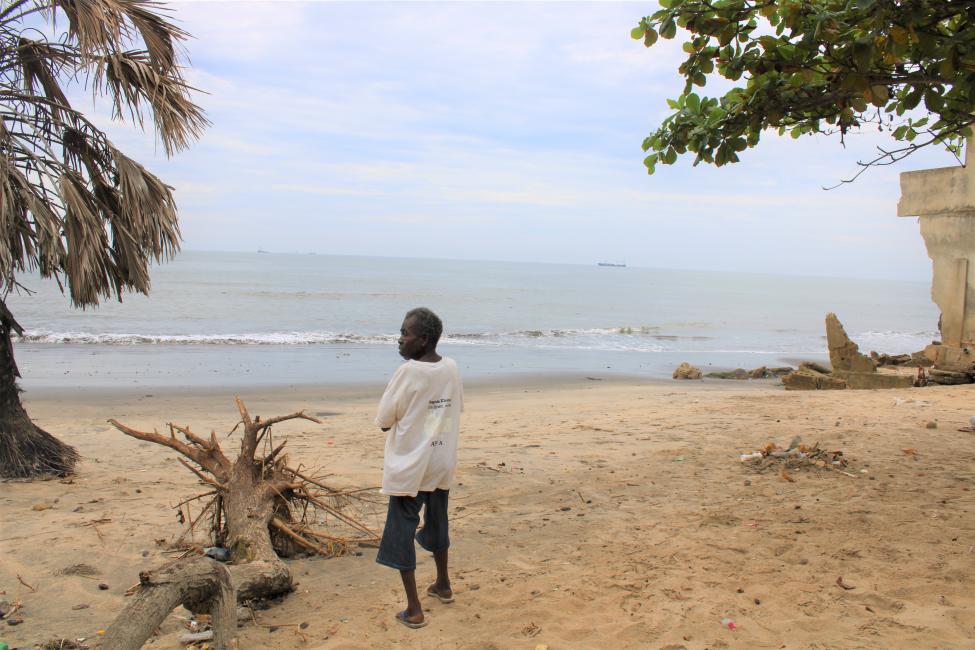-
Who we are
WHO WE AREThe International Organization for Migration (IOM) is part of the United Nations System as the leading inter-governmental organization promoting humane and orderly migration for the benefit of all. IOM has been active in Southern Africa since the early 1990s.
About
About
IOM Global
IOM Global
-
Our Work
Our WorkAs the leading inter-governmental organization promoting humane and orderly migration, IOM plays a key role to support the achievement of the 2030 Agenda through different areas of intervention that connect both humanitarian assistance and sustainable development. Across the Southern Africa region, IOM plays an important role of protecting, assisting and supporting migrants.
Cross-cutting (Global)
Cross-cutting (Global)
- Where we work
- Take Action
- Data and Resources
- 2030 Agenda
IOM supports Disaster Risk Reduction efforts in Angola’s Cabinda Province
Along the Angolan shoreline of the Atlantic Ocean lies the small enclave and province of Cabinda.
Located on the outskirts of Cabinda town is Girassol beach, where the low tide crashes in and out. The water is a murky black colour, caused by offshore oil drilling by the big tanker ships dotted along the horizon. On the opposite end of the sand, a stone-throw away from the water, are streams of houses – some still intact but many more in ruins following a cyclone that hit this small community, displacing its residents.
“This area was not always this lonely. I used to have neighbours and we used to live happily – but many were forced to leave when the calemas [tropical storm] destroyed our homes,” said Jacinto Elota, a resident of the seaside community.
In June 2020, 21 families were displaced when their homes were turned into rubble following a strong cyclone that hit the coastline of Cabinda. For Jacinto and other residents that remain, while the landscape of their shoreline is barely recognizable, they carry on with their lives – with brewing uneasiness – not knowing when the storms will hit next.
“We are facing two forces – on one side, the cyclone from the sea. And on the other side, the landslides that occur when heavy rain sweeps the soil off the ground, uprooting anything in its path,” said Jacinto.
“We live in fear not knowing when the next disaster will hit or how bad it will be,” he added.
To reduce vulnerabilities and the impact caused by such natural disasters, the International Organization for Migration (IOM), through the Africa Regional Migration Program (ARMP) conducted a four-day capacity-building training on Disaster Risk Management (DRM) for 32 government officials from the Department of Civil Protection (DCP), the Fire Brigade and other local actors responsible for disaster management in Cabinda. The training included principals championed by the Sendai Framework for Disaster Reduction and the 2030 Agenda for Sustainable Development.
The training will help reduce the population’s vulnerability to climate and disaster risk by building the DRM capacity and ensuring a whole-of-government approach in disaster preparedness and response.

“IOM works hand-in-hand with the government to put in place mechanisms that will reduce the human cost of these disasters,” said Ms. Claudia Victor, IOM’s Project Assistant in Angola.
Two trainers from Angola’s Ministry of Interior, who previously benefitted from a training-of-trainers (ToT) workshop supported by IOM, led the training, cascading knowledge and skills on DRM that they acquired during the ToT, including on how to better prepare and respond to natural disasters.
Participants were trained on community-led initiatives that facilitate emergency management, risk reduction and community resilience. They also had an opportunity for a hands-on group exercise to test different disaster response scenarios.

“We are encouraged that this training supported by IOM will help us help our people to mitigate the effects of natural disasters,” said Mr. Enrique Bras Capita, the Commissioner of the Department of Civil Protection in Cabinda province.
“The reduction of migrant vulnerability is a top priority, and we remain committed to continue to support the Government of Angola, and other partner governments across the continent where the ARMP is working, to come up with innovative solutions to prepare for and respond to natural disasters, to counter climate change impacts through climate change adaptation and disaster risk reduction initiatives,” said the ARMP’s Program Coordinator, Mr. Norberto Celestino.
The training is very timely as the region prepares for recurrent cyclones and heavy rains heightened by climate change.
On 9 – 11 May, the ARMP conducted a similar training in Cunene Province where 30 government officials were trained on DRM. The trainers educated local leadership to better prepare for and mitigate the negative consequences of disasters.
The Africa Regional Migration Program is supported by U.S. Department of State Bureau of Population, Refugees, and Migration.
For more information please contact Liatile Putsoa, lputsoa@iom.int.
